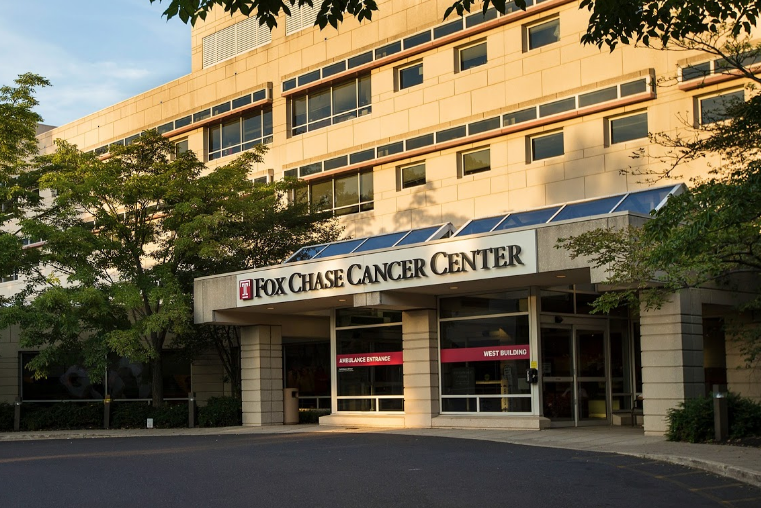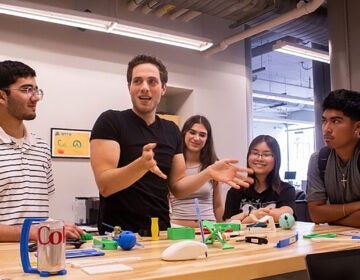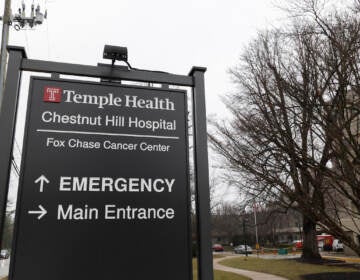Collapse of Jefferson’s Fox Chase deal signals ‘major problems’ ahead for hospitals
Why one expert believes the termination of the Fox Chase Cancer Center sale is just the start of some tough times for hospitals.

Fox Chase Cancer Center (Google Maps)
This article originally appeared on Philadelphia Business Journal.
—
The termination of Temple University’s proposed sale of Fox Chase Cancer Center to Jefferson Health is just the start of the turbulent times that lie ahead for hospital operators, according to one local expert.
Joshua A. Nemzof, a Bucks County consultant in health care merger and acquisition transactions who has been involved in more than 300 deals nationally, was not surprised to see the Fox Chase deal called off, or that the Covid-19 pandemic was cited as the reason why.
“Jefferson needs to stay 100% focused on dealing with this crisis,” he said. “Now is not the time to go through an acquisition. They can deal with the addition on to the house after they put out the fire in the living room.”
The fallout from the pandemic, both nationally and locally, will result in the number of distressed hospitals increasingly “dramatically.” That, he said, will create significant industry consolidation on an accelerated basis.
“There is no doubt that many hospitals will have a major problem with liquidity, with cash,” he said. “They took a double hit. First their portfolios took a beating when the markets crashed. And then their revenue dropped like a stone when they stopped elective procedures. If they survive, the next challenge will be reopening their operations and getting people back to work.”
Additionally, Nemzoff said it’s likely hospital closings accelerate in this environment.
“When you run out of cash you typically file for bankruptcy but if there is no one there to buy you out of bankruptcy, then it becomes an asset liquidation and at that point you padlock the doors with a chain,” Nemzoff said.
Fox Chase Cancer Center generated revenue of $417 million and a net income of $32.3 million in fiscal 2019, according to data from the Pennsylvania Health Care Cost Containment Council.
Dr. Stephen K. Klasko, president of Thomas Jefferson University and CEO of Jefferson Health, late Tuesday called the termination of the Fox Chase Cancer Center transaction the latest casualty of Covid-19.
Temple and Jefferson had reached a definitive agreement in December covering the sale of Fox Chase Cancer Center, which has been part of the Temple health system since 2011. Financial terms of the deal were not disclosed.
Fox Chase Cancer Center, a research institution and 100-bed specialty hospital, has about 2,000 employees.
“Because of the tremendous impact that the virus has had on our operations, Jefferson must focus entirely on providing patient care and safety, student education and safety, and the well-being of our dedicated employees,” Klasko said in explaining what was describing as a mutual and amicable decision to call off the sale.
Jefferson’s footprint in the region could have been even larger by this time if the Federal Trade Commission not stepped in and moved to block the proposed merger of the Einstein Healthcare Network into the Jefferson system, which already has 14 hospitals. The FTC cited anti-trust grounds.
Einstein has been among the Philadelphia-based health systems with the largest volume of Covid-19 patients.
The Einstein-Jefferson proposed merger has shifted to court after the FTC filed suit to block the deal. No court dates have been set.
When asked whether the FTC did Jefferson a favor, from a financial perspective, by stalling the Einstein deal, Nemzoff said: “Well, if you assume that Jefferson would have closed that deal before March 15, then Steve Klasko should send the FTC lawyer assigned to the case the biggest gift basket money can buy. They did him a huge favor if he was going to close before that date. If it was later, I assume Jefferson would have walked away and used the MAC (material adverse change) clause to do it.”
WHYY is your source for fact-based, in-depth journalism and information. As a nonprofit organization, we rely on financial support from readers like you. Please give today.


![CoronavirusPandemic_1024x512[1]](https://whyy.org/wp-content/uploads/2020/03/CoronavirusPandemic_1024x5121-300x150.jpg)


